
One night 50 years ago, on 21 November 1974, five men boarded a train from Birmingham New Street station heading for the Lancashire port of Heysham to catch a ferry to Belfast. They were going to the funeral of an IRA bomber who had blown himself up in Coventry the week before.
The train left shortly before 8pm. Around 20 minutes later, a bomb exploded at a pub in Birmingham city centre called The Mulberry Bush. It was followed by a second explosion at The Tavern in the Town, another pub nearby. Twenty-one people were killed and 220 injured.
The five men who had left the city by train – and a friend who waved them off at the station – were detained hours later on suspicion of being behind the bombings. They would become known as the Birmingham Six.
At a trial in 1975, they were each sentenced to life for the murders of 21 people.
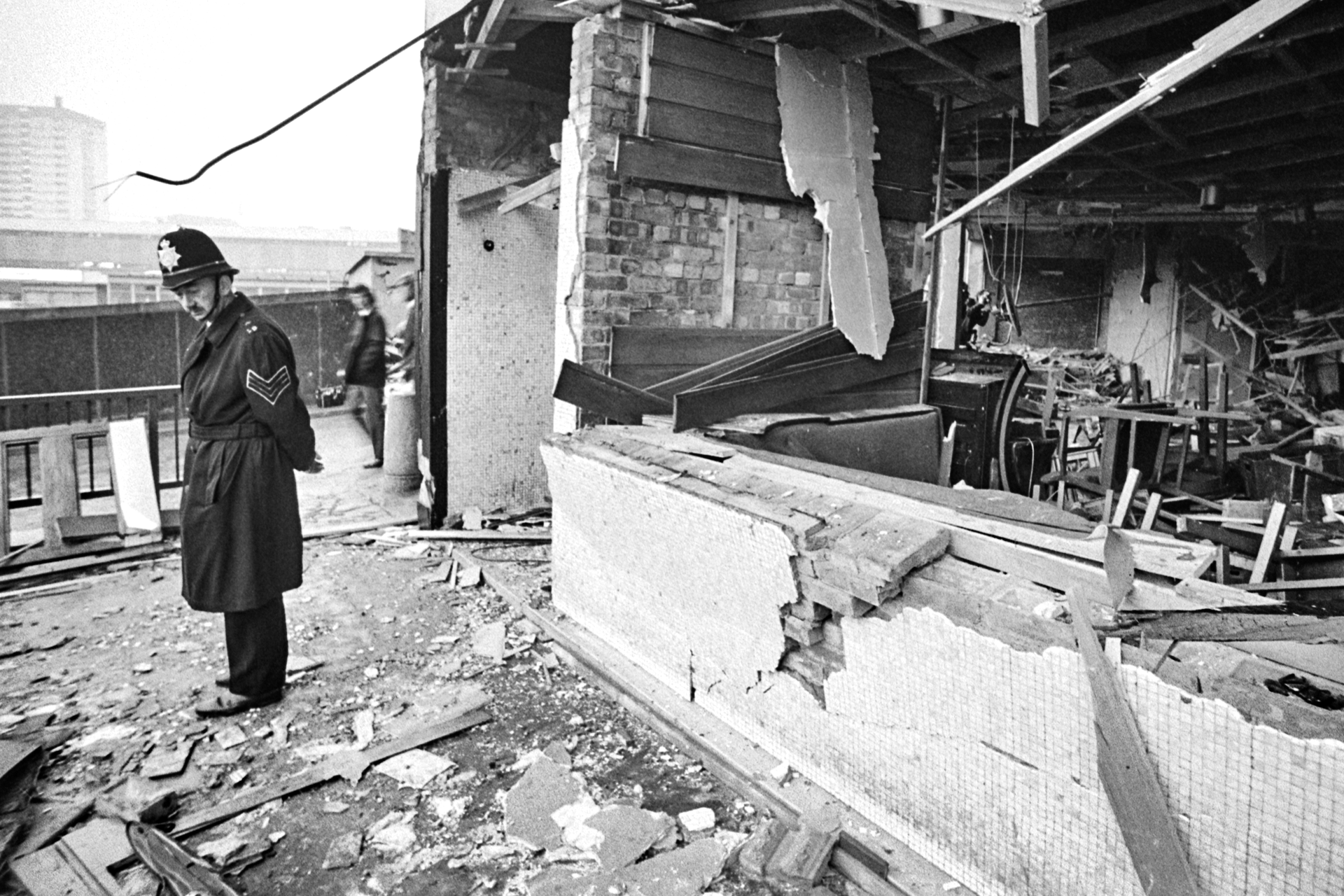
The Mulberry Bush in Birmingham after the bombing
Yet in 1991, their convictions were quashed and the men were released from prison, largely thanks to Chris Mullin, an investigative journalist, who by that time was also a Labour MP. During the original trial, Mullin had been tipped off that there might be something flawed with the convictions, and some time later he started digging.
“I realised from the start that poking holes in police evidence alone wasn’t enough,” he says today. “I’d need to track down the real bombers and they’d be alive and well in Ireland…”
It took several years to prove the mens’ innocence, but few could have imagined that decades on there would still be so many questions to answer or that now, a full 50 years since the bombings, no one has been brought to justice for what’s believed by many to be the largest unsolved mass murder in recent times in Britain.
Today there are continued calls for a public inquiry into the pub bombings – and that might be inching closer to becoming a reality.
Andy Street, former Mayor of the West Midlands, who worked closely with the families of the victims of the bombings and liaised with the Home Office, told the BBC in September: “I do believe the government could decide to grant the public inquiry. I’ve got good evidence to believe that's the situation they're in, so there is a decision that can be taken.”
Street believed they were getting close to a decision before the change of government in July. Home Secretary Yvette Cooper declined to comment but the Home Office told the BBC that “on 22 October, Security Minister Dan Jarvis confirmed to Parliament that he and the home secretary will consider requests for a public inquiry as soon as possible.”
If the public inquiry does open, it could start to answer what really happened that night – and why no one has been brought to justice.


Mullin has his own views on what really happened. He began his investigation by visiting known IRA men in prison before finding a number of others who hadn’t been in prison on the night of the bombings. “That was a trickier task,” he explains. “But a surprising number of people were helpful. They did all know that the wrong people were inside. And that did play on their conscience.”
Mullin described the accounts of his meetings with the four people he concluded were the real bombers in his book, Error of Judgement, which was published in 1986. But he’d given assurances he would never reveal their names, referring to them only as X, Y, Z and the “Young Planter”.
However, while Mullin’s investigation helped free the Birmingham Six, it didn’t bring about any further prosecutions.
While the IRA have never officially admitted being responsible, they are widely believed to have been behind the attacks. In the early 1970s, they had brought their campaign to the streets of Britain. There had already been some horrific attacks in 1974 by the time the pub bombings occurred, but none that had targeted civilians in the same way.
At 8.11pm on the evening of the Birmingham bombings, a man with an Irish accent had telephoned the Birmingham Post and Mail to say that two bombs were being planted in the city centre, but the warning was vague – it didn’t even mention the pubs by name. Minutes later, the bombs exploded.
John Plimmer had been having a drink at the Tavern in the Town moments before the explosion. Today he says the memories of that night have never left him. “Fifty years on means nothing. To me, it was like yesterday. What had been all lit with bright lights, and full of gaiety and joyous celebration, was now pitch black with a sickly smell of cordite.”
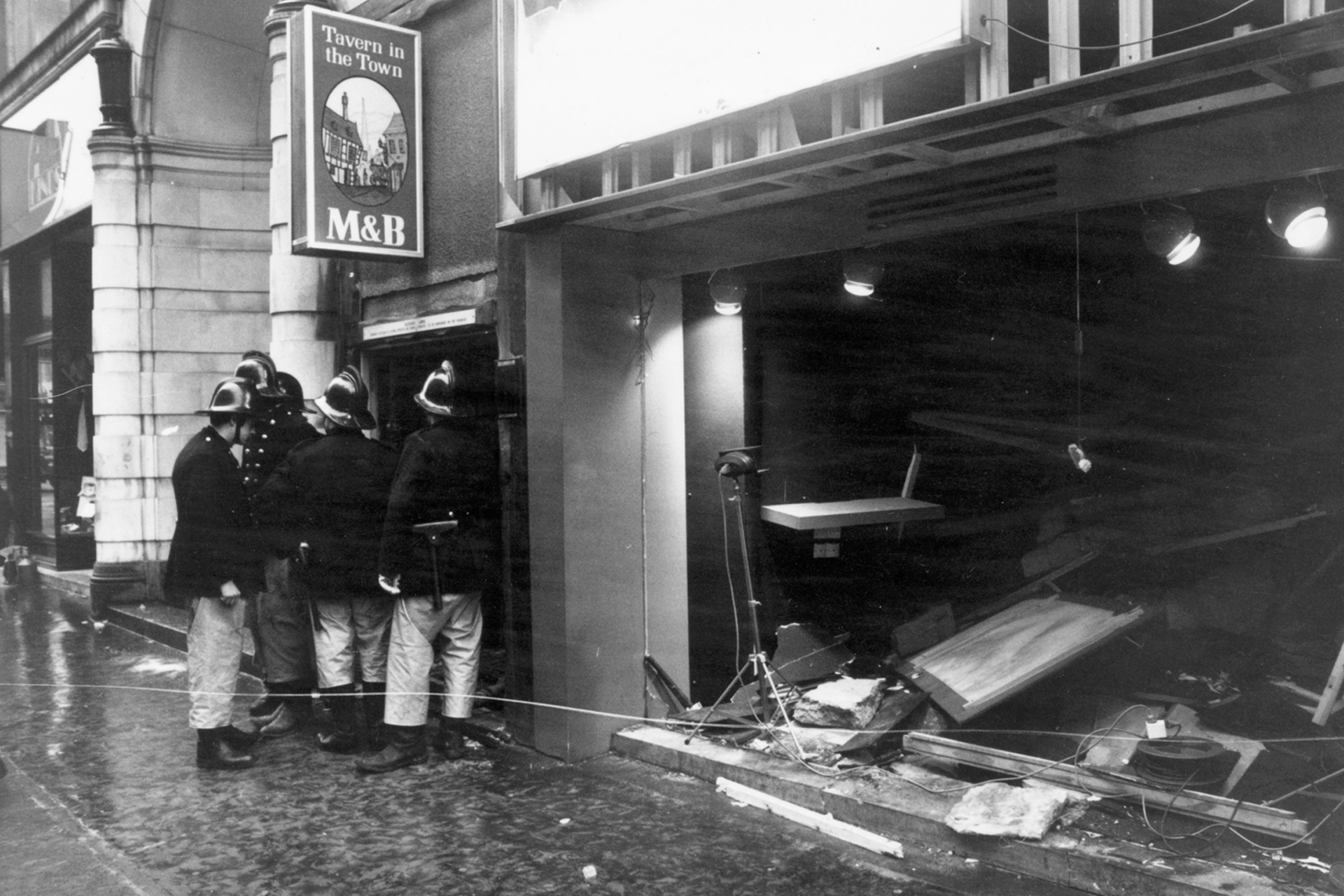
According to Mullin, the pubs had been targeted due to the buildings they were part of – the Tavern in the Town was directly below a tax office
The passing of time has inevitably made the prospect of solving it harder for the police – potential witnesses have died, and memories fade. Added to that, multiple pieces of evidence – including a third, unexploded bomb that was found on the same evening – have been lost.
Yet there is one benefit that the passing of time has brought: the fact that certain revelations have emerged about who might have carried out the bombings, including a former IRA bomber naming people he said carried out the attacks.
The West Midlands Police reopened the investigation after the Birmingham Six were released in 1991, looking for any new leads and examining old evidence, but closed it down again in 1994. The chief constable at the time, Ron Hadfield, said: “The West Midlands Police have done everything that was humanly possible to try to bring to court the perpetrators of those horrendous offences 20 years ago.”
After that, not a great deal happened for a number of years. But in 2010, the sister of one of the victims started a campaign for justice, known as Justice for the 21. The first target was to get the inquest into the deaths of the 21 victims reopened – it had never been finished in the 1970s because the bombings had been subject to a criminal prosecution that resulted in a conviction.
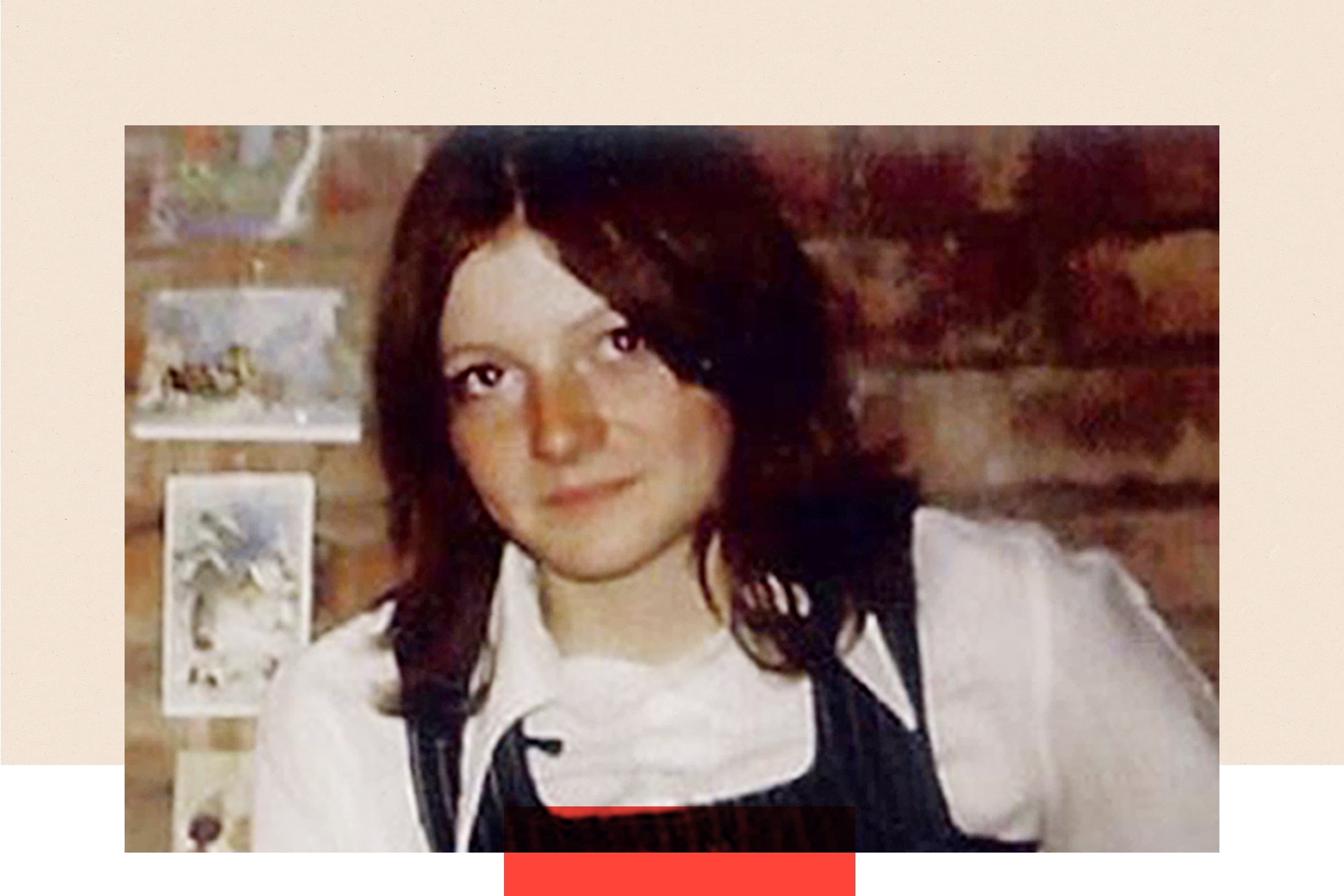
Maxine Hambleton was 18 when she was killed in the bombing
Julie Hambleton’s older sister Maxine was killed in the Tavern in the Town bombing. Julie – who was 11 at the time of the attack – told me she regrets waiting so long to act, but admits: “I wasn’t strong enough to face it before.”
Thanks in part to their campaigning, the inquest eventually happened in 2019, concluding that the victims had been unlawfully killed.
But their families were frustrated by the limited scope and didn’t feel they’d learned much from it. As Hambleton told me: “It was a waste of time.”
Who the real bombers might have been
There was one surprising development at the inquest, though. A witness who was a convicted IRA bomber, known only as “Witness O”, testified to say he’d been told by the leader of the IRA (in itself an interesting point, as many believed the IRA no longer existed) that he could reveal the names of four alleged perpetrators: Mick Murray, James Francis Gavin, Seamus McLoughlin and Michael Hayes.
On the eve of the inquest, Mullin named three of the four people he believed were responsible for the attacks, the men he’d referred to in his book as X, Y and Z: Murray, Gavin and Hayes respectively. Mullin said he felt able to name them now because the first two were dead and the third, Hayes, had never really cooperated with him so he felt he didn’t owe him a duty of confidentiality.
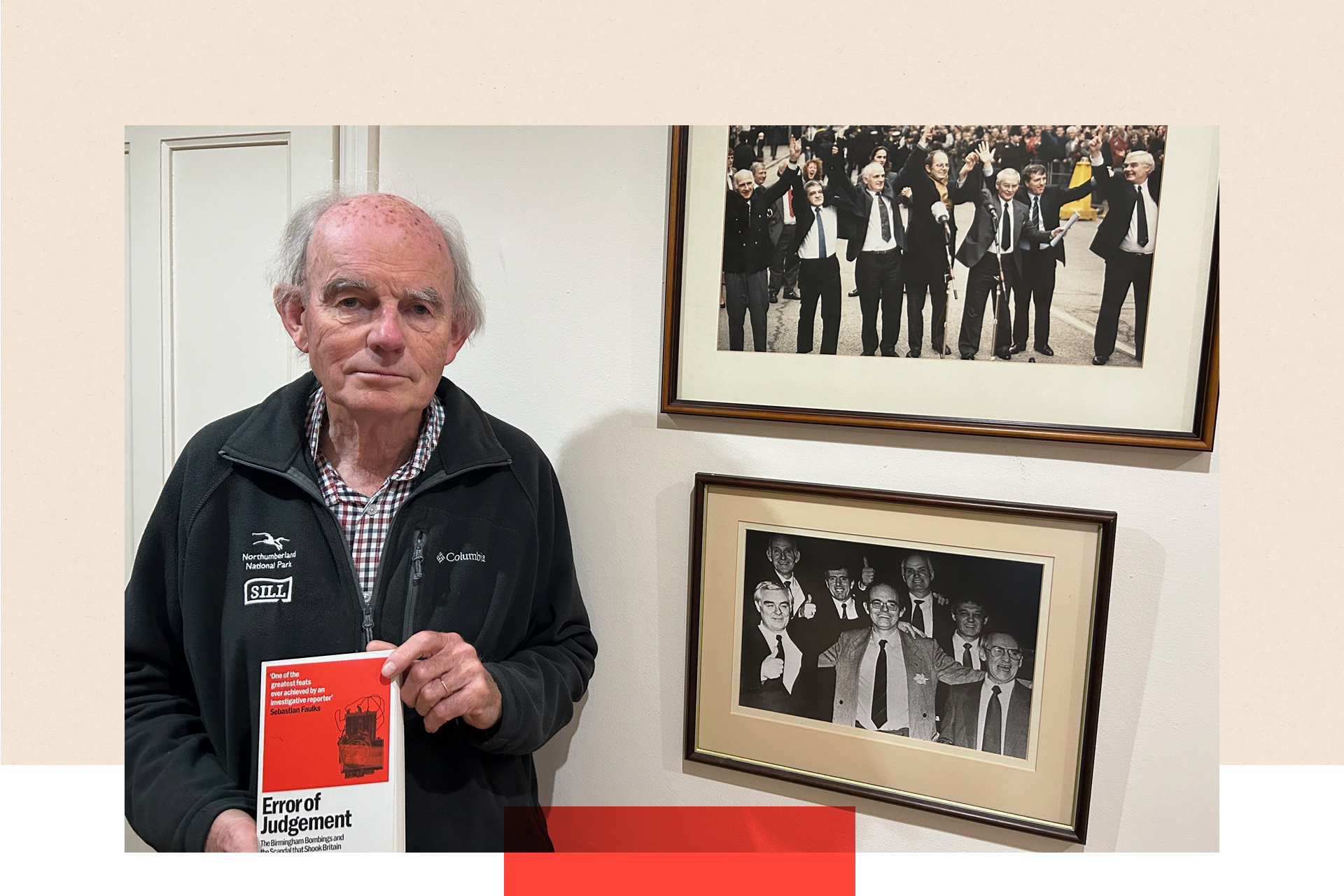
Chris Mullin has spent years investigating the case
Mullin has, to this day, refused to name the fourth person he believes is involved, the man he called the “Young Planter” – because he’s still alive. The fourth man named by Witness O, Seamus McLoughlin, is believed to have been the head of the Birmingham IRA at the time, so it seems likely he would at least have known what was planned. He has since died, and there’s no suggestion he’s the Young Planter.
These were all men who were known to the police already, but would being named by a former IRA man change anything, even if it was 45 years after the attacks? Given that three were dead, in their case, no. But what about the fourth, Michael Hayes?
In an interview with a BBC journalist in 2017, Hayes accepted what he called "collective responsibility" for the Birmingham pub bombings. But he was vague about his exact role on the night, repeating “no comment” in response to questions.
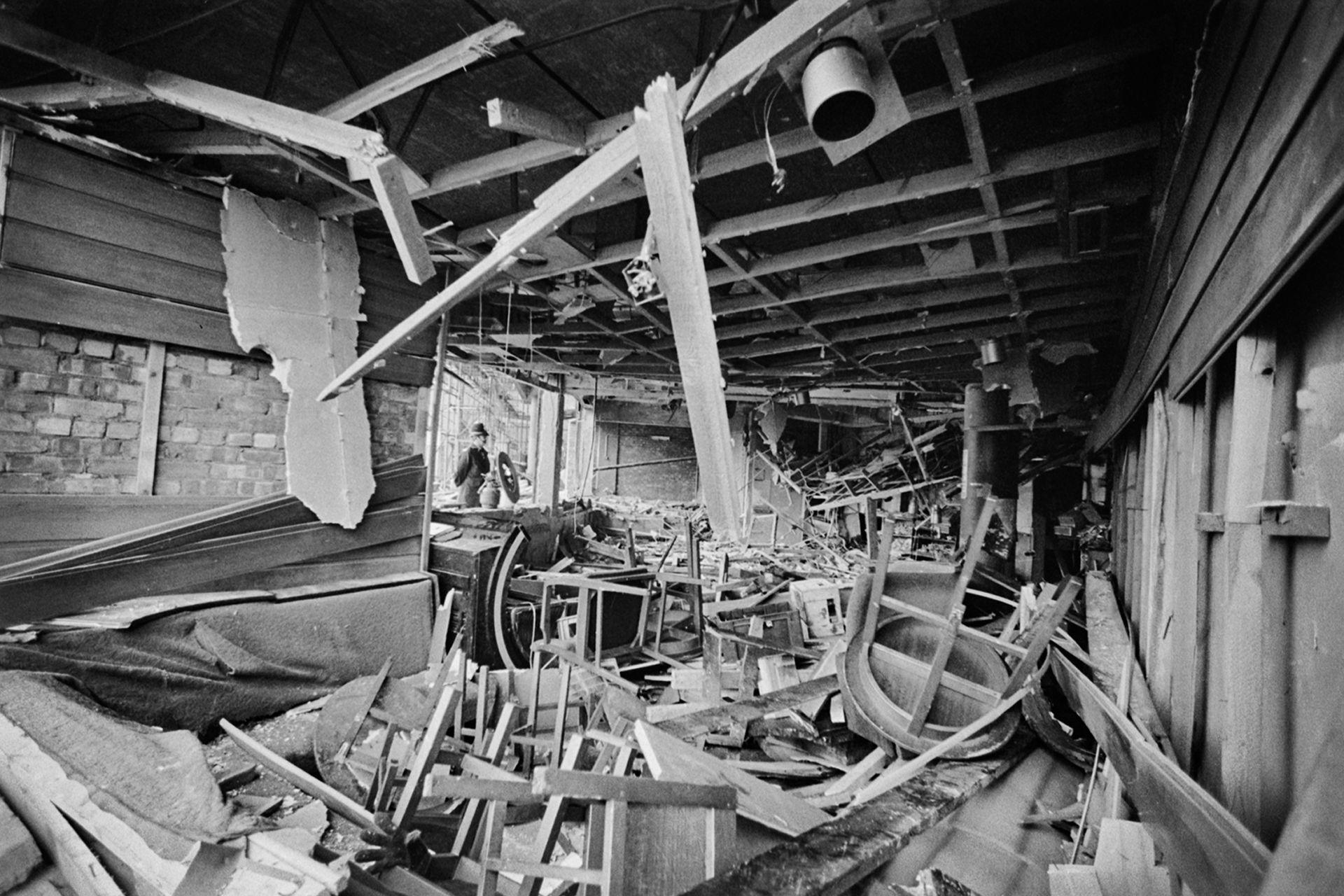
The aftermath of the bombing at The Mulberry Bush
There is a fifth name out there too: Michael Patrick Reilly. In a 2018 documentary broadcast on ITV, it was suggested that Reilly was the “Young Planter”. Mullin would not confirm either way when this was put to him. And Witness O was asked about Reilly but said he’d never heard of him.
Reilly, who served a sentence in England in the 1970s for conspiring to cause explosions (but not the pub bombings) – has always denied any involvement in the pub bombings. The BBC, and other outlets, reported that he’d been arrested in 2020 and released without charge.
While the police have never confirmed this, Assistant Chief Constable Damian Barratt from West Midlands Police told me that “as recently as 2023, we provided files of evidence in relation to [Reilly and Hayes] to the Crown Prosecution Service” – but they had concluded the evidence was insufficient to proceed any further.
Theories instead of answers
Insufficient evidence seems to be the primary reason that no one has faced justice for all these years. There are some, however, who suggest there may be another reason.
The 1998 Good Friday Agreement brought to an end 30 years of conflict in Northern Ireland, and led to the release of around 220 paramilitary prisoners. In more recent years, another part of the negotiations has come out concerning so-called “On the Runs”. These were the people who were wanted for Troubles-related crimes but hadn’t been prosecuted.
It has been suggested by Paddy Hill of the Birmingham Six and others that as part of the Agreement, some of the real bombers were offered letters of immunity guaranteeing they couldn’t be prosecuted. ACC Barratt said the police were not aware of this.
And there’s another theory being mooted by people from all sorts of sectors – including former IRA members I’ve spoken to and campaigners for justice and their supporters – that the reason this case hasn’t ever been solved is that there’s too much at stake for the authorities if all the details were to come out.
Some have even made the accusation that the authorities knew that the bombings were going to happen and allowed them to do so for political gain, notably getting new anti-terrorism laws through and turning the public against the IRA.
In response to these allegations, the Home Office told the BBC they could find "nothing to indicate any attempt by the Government, or state agency, to cover up information about the bombings".

Freddie Scappaticci, known by the codename Stakeknife
These are all just theories, but we do now know that there were many informers in the IRA. And the British state has been accused of not taking action over a number of unlawful killings and attacks during the Troubles.
The story of Stakeknife – the codename for the British Army’s IRA spy Freddie Scappaticci, who was unmasked in 2003 – is informative. As a member of the IRA’s internal security unit in the 1980s, he was implicated in multiple killings of people identified as informers, all while on the payroll of the Army.
There is no suggestion that any elements of the British state were involved in the Birmingham bombings, and the jury in the 2019 inquest found that “on the basis of evidence available” they didn’t think the police had advance warning. But, to many, the question of whether the police had an informer in the Birmingham IRA unit – and whether or not they had notice of the bombings prior to the warning call – are just two of many questions that remain.
Finding answers hasn’t been easy though, and accessing files has not been straightforward, which is why there has been mounting pressure for a public inquiry. Some argue public inquiries are not a good use of money and time, particularly for historic cases – the Bloody Sunday inquiry in 2017 cost £210m.
In their statement, the spokesperson for the Home Office added that they “will continue engagement with the families of the victims and their representatives.”
Paul Bridgewater, whose father Paul Anthony Davies was killed in the blasts three months before Paul was born, says: “We'll be fighting till the day we die and then there'll be other people fighting it. My daughter, who's 25, knows all about it, and she'll take the lead. We're not going to go away.”
Even now, Julie Hambleton hasn’t given up hope of an inquiry. This, she says, is the only way the families will ever get answers to the questions they want.
“Grenfell’s had it, Hillsborough – quite rightly,” she tells me, “but where’s ours? It’s been 50 years.”
Correction 26 February: We have amended the phrasing in this article to refer to the Birmingham pub bombings as the largest unsolved mass murder in recent times in Britain, rather than in modern British history.
More from InDepth
The real reason for the rise in male childlessness
- Published1 November 2024
What the US election outcome means for Ukraine, Gaza and world conflict
- Published29 October 2024
Why tuition fees are set to rise - and what this means for students
- Published28 October 2024
BBC InDepth is the new home on the website and app for the best analysis and expertise from our top journalists. Under a distinctive new brand, we’ll bring you fresh perspectives that challenge assumptions, and deep reporting on the biggest issues to help you make sense of a complex world. And we’ll be showcasing thought-provoking content from across BBC Sounds and iPlayer too. We’re starting small but thinking big, and we want to know what you think - you can send us your feedback by clicking on the button below.
Get in touch
InDepth is the home for the best analysis from across BBC News. Tell us what you think.

